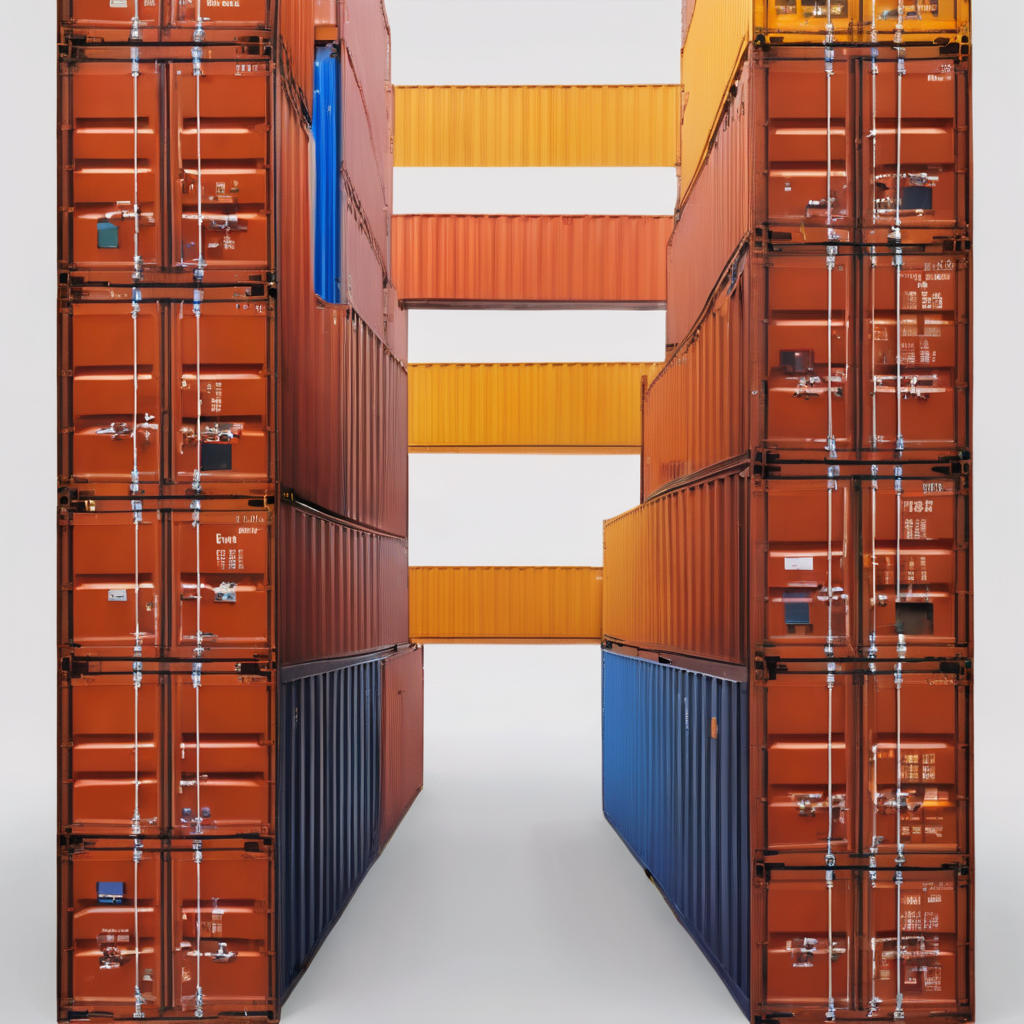Install Docker on Ubuntu OS
Install Docker on Ubuntu OS
Table of Contents
Toggle
Docker is a community and open source container technology.
Docker is platform for developing, running and shipping
applications in containers. Containers are very light weight,
isolated operating system or environment. It runs for
development as well as production. It is widely used due to
its portability and scalability character. If you talk about
docker architecture, you can say it is based on OS
virtualization. A single docker host can run multiple
containers. Docker is a community and open source container
technology.
Two release of docker are available in market.
Docker ce: Docker Community Edition
Docker ee: Docker Enterprise Edition.
Let's install it on Ubuntu OS. Below steps need to perform for
installation of docker-ce.
Step1: Update package list so that you have latest updates about the packages:
# apt-get update
Hit:1 http://in.archive.ubuntu.com/ubuntu jammy InRelease
Hit:2 http://in.archive.ubuntu.com/ubuntu jammy-updates InRelease
Hit:3 http://in.archive.ubuntu.com/ubuntu jammy-backports InRelease
Hit:4 http://in.archive.ubuntu.com/ubuntu jammy-security InRelease
Reading package lists... Done
# apt-get install ca-certificates curl gnupg
Reading package lists... Done
Building dependency tree... Done
Reading state information... Done
ca-certificates is already the newest version (20230311ubuntu0.22.04.1).
ca-certificates set to manually installed.
curl is already the newest version (7.81.0-1ubuntu1.13).
curl set to manually installed.
gnupg is already the newest version (2.2.27-3ubuntu2.1).
gnupg set to manually installed.
0 upgraded, 0 newly installed, 0 to remove and 24 not upgraded.
# install -m 0755 -d /etc/apt/keyrings
# curl -fsSL https://download.docker.com/linux/ubuntu/gpg | sudo gpg --dearmor -o /etc/apt/keyrings/docker.gpg
# chmod a+r /etc/apt/keyrings/docker.gpg
# echo \
"deb [arch="$(dpkg --print-architecture)" signed-by=/etc/apt/keyrings/docker.gpg] https://download.docker.com/linux/ubuntu \
"$(. /etc/os-release && echo "$VERSION_CODENAME")" stable" | \
sudo tee /etc/apt/sources.list.d/docker.list > /dev/null
# apt-get update
Get:1 https://download.docker.com/linux/ubuntu jammy InRelease [48.9 kB]
Get:2 https://download.docker.com/linux/ubuntu jammy/stable amd64 Packages [22.2 kB]
Hit:3 http://in.archive.ubuntu.com/ubuntu jammy InRelease
Hit:4 http://in.archive.ubuntu.com/ubuntu jammy-updates InRelease
Hit:5 http://in.archive.ubuntu.com/ubuntu jammy-backports InRelease
Hit:6 http://in.archive.ubuntu.com/ubuntu jammy-security InRelease
Fetched 71.0 kB in 1s (48.6 kB/s)
Reading package lists... DoneStep2: Now go and install docker:
# apt-get install docker-ce docker-ce-cli containerd.io docker-buildx-plugin docker-compose-plugin
Reading package lists... Done
Building dependency tree... Done
Reading state information... Done
The following additional packages will be installed:
docker-ce-rootless-extras libltdl7 libslirp0 pigz slirp4netns
Suggested packages:
aufs-tools cgroupfs-mount | cgroup-lite
The following NEW packages will be installed:
containerd.io docker-buildx-plugin docker-ce docker-ce-cli docker-ce-rootless-extras docker-compose-plugin libltdl7 libslirp0 pigz
slirp4netns
0 upgraded, 10 newly installed, 0 to remove and 24 not upgraded.
Need to get 114 MB of archives.
After this operation, 409 MB of additional disk space will be used.
Do you want to continue? [Y/n] y
Get:1 https://download.docker.com/linux/ubuntu jammy/stable amd64 containerd.io amd64 1.6.24-1 [28.6 MB]
Get:2 http://in.archive.ubuntu.com/ubuntu jammy/universe amd64 pigz amd64 2.6-1 [63.6 kB]
------
------
------
------
Scanning processes...
Scanning linux images...
Running kernel seems to be up-to-date.
No services need to be restarted.
No containers need to be restarted.
No user sessions are running outdated binaries.
No VM guests are running outdated hypervisor (qemu) binaries on this host.Step3: Check service status and start if not running. Also enable it on boot:
# systemctl status docker
● docker.service - Docker Application Container Engine
Loaded: loaded (/lib/systemd/system/docker.service; enabled; vendor preset: enabled)
Active: active (running) since Sat 2023-09-30 18:01:58 UTC; 2 days ago
TriggeredBy: ● docker.socket
Docs: https://docs.docker.com
Main PID: 894 (dockerd)
Tasks: 9
Memory: 96.7M
CPU: 13.833s
CGroup: /system.slice/docker.service
└─894 /usr/bin/dockerd -H fd:// --containerd=/run/containerd/containerd.sockStep4: You can go ahead and fetch a container to test:
# docker run hello-world
Unable to find image 'hello-world:latest' locally
latest: Pulling from library/hello-world
719385e32844: Pull complete
Digest: sha256:4f53e2564790c8e7856ec08e384732aa38dc43c52f02952483e3f003afbf23db
Status: Downloaded newer image for hello-world:latest
Hello from Docker!
This message shows that your installation appears to be working correctly.
To generate this message, Docker took the following steps:
1. The Docker client contacted the Docker daemon.
2. The Docker daemon pulled the "hello-world" image from the Docker Hub.
(amd64)
3. The Docker daemon created a new container from that image which runs the
executable that produces the output you are currently reading.
4. The Docker daemon streamed that output to the Docker client, which sent it
to your terminal.
To try something more ambitious, you can run an Ubuntu container with:
$ docker run -it ubuntu bash
Share images, automate workflows, and more with a free Docker ID:
https://hub.docker.com/
For more examples and ideas, visit:
https://docs.docker.com/get-started/Related
Loading repositories and latest updates...
Recent Posts
Recent Blog
- Tanisha Yirawala on Difference between Connection-oriented protocols vs Connectionless Protocols
- OlpWriple on Installation of Linux Operating System (Red Hat 8) in VMWare Workstation
- Berenice Saenz on Difference between Connection-oriented protocols vs Connectionless Protocols
- Chloe Adams on Difference between Connection-oriented protocols vs Connectionless Protocols
- Taylor Swift on Difference between Connection-oriented protocols vs Connectionless Protocols
Interview Q&A
- May 2025
- March 2025
- November 2024
- October 2024
- September 2024
- July 2024
- June 2024
- May 2024
- March 2024
- February 2024
- January 2024
- November 2023
- October 2023
- September 2023
- August 2023
- July 2023
- April 2023
- March 2023
- January 2023
- December 2022
- November 2022
- October 2022
- September 2022
- August 2022
- May 2022
- April 2022
- March 2022
- February 2022
- January 2022
- November 2021
- September 2021
- August 2021
- July 2021
- June 2021
 Visit My GitHub VARELITE
Visit My GitHub VARELITE
2 thoughts on “Install Docker on Ubuntu OS”